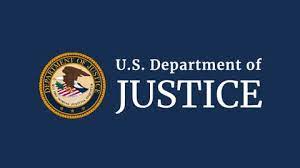Trafigura Joins the FCPA Enforcement Club: Pleads Guilty and Pays Over $126 Million for Bribery Violations in Brazil (Part I of III)

On the heels of the Gunvor FCPA settlement for $661 million, DOJ announced its settlement with Trafigura, the latest commodities trading company to fall under DOJ’s FCPA Sweep against the industry. Trafigura joined the list of international commodity trading companies to suffer FCPA enforcement actions — Vitol, Sargeant Marine, Glencore, Freepoint, and Gunvor.
DOJ’s corporate resolutions are connected to individual prosecutions and guilty pleas of 19 individuals, including six government officials, eight corrupt intermediaries and five trading companies.
Trafigura’s criminal plea stems from its corrupt scheme to pay bribes to Brazilian officials to secure business with Brazil’s state-owned oil company, Petróleo Brasilerio S.A. (“Petrobras”). Trafigura earned approximately $61 million in illicit profits from its corrupt scheme.

In applying its Corporate Enforcement Policy factors, DOJ cited the following factors: Trafigura’s cooperation and affirmative acceptance of responsibility, which included, (i) providing timely updates on facts learned during its internal investigation; (ii) making factual presentations to DOJ; (iii) facilitating the interviews of employees and agents, including an employee located outside the United States, and arranging for counsel for employees where appropriate; (iv) producing relevant non-privileged documents and data to DOJ, including documents located outside the United States in ways that navigated foreign data privacy laws, accompanied by translations of certain documents; and (v) providing all relevant facts known to it, including information about individuals involved in the conduct. However, and particularly during the early phase of DOJ’s investigation, Trafigura failed to preserve and produce certain documents and evidence in a timely manner and, at times, took positions that were inconsistent with full cooperation.
DOJ cited Trafigura’s remedial measures, including: (i) developing and implementing enhanced, risk-based policies and procedures relating to, among other things, anti-corruption, use of intermediaries and consultants, third party payments, and joint venture and equity investment risk assessment; (ii) enhancing processes and controls around high-risk transactions; (iii) investment of additional resources in employee training and compliance testing; (iv) enhancing ongoing compliance monitoring and controls testing processes; and (v) proactively discontinuing the use of third-party agents for business origination. However, Trafigura was slow to exercise disciplinary and remedial measures for certain employees whose conduct violated company policy.
DOJ also cited Trafigura’s prior misconduct, which includes a 2006 guilty plea by Trafigura for entry of goods by means of false statements; and Trafigura’s 2010 conviction of violating Netherlands export and environmental laws in connection with the discharge of petroleum waste in Côte d’Ivoire.
As noted above, DOJ criticized Trafigura’s early posture in resolution negotiations which caused significant delays and required DOJ to expend substantial efforts and resources to develop additional admissible evidence before Trafigura constructively reengaged in agreeing to a negotiated resolution.
Based on all of these factors, DOJ agreed to award Trafigura only a 10 percent reduction off the fifth percentile of the applicable guidelines fine range.

DOJ’s Industry Sweep: $1.7 Billion, 6 Companies and 20 Individual Convictions
After announcing Trafigura’s guilty plea, DOJ touted the results of its industry sweep against international commodities trading firms. DOJ cited its multiple plea agreements involving commodities trading companies and individuals that paid bribes to win business with state-owned oil companies in Latin America and Africa. In total, DOJ has reached six corporate resolutions and convicted 20 individuals from the industry for bribery and money laundering charges, totaling more than $1.7 billion in fines, forfeitures and other penalties.
The six corporate resolutions include Sargeant Marine, Vitol, Glencore, Freepoint, Gunvor and Trafigura. Last month, a Javier Aguilar, a former Vitol trader, was convicted of FCPA and money laundering charges following a seven-week trial in Brooklyn, New York.
Federal Judge Questions DOJ Plea Agreement and Enforceability
The Trafigura settlement included an interesting twist when the federal judge assigned to the case, District Judge Kathleen Williams, questioned DOJ’s plea agreement and its enforceability. As reflected in the now unsealed court docket, Judge Williams raised concerns about the enforceability of the plea agreement. Eventually, Judge Williams was persuaded to accept the plea agreement after both DOJ prosecutors and Trafigura counsel submitted letters urging the judge to accept the plea agreement. Copies of the letters are available here (DOJ) and here (Trafigura).

At issue, Judge Williams suggested that the court should retain jurisdiction to ensure that Trafigura complies with its specific obligations to improve its compliance program. DOJ and Trafigura argued that such requirements could be enforced by DOJ and did not require the court to retain jurisdiction. Copies of the letters to the court are available below.
DOJ and Trafigura argued that the court’s retention of jurisdiction would upset and jeopardize the plea agreement between the parties. Apparently, Judge Williams backed down and accepted the plea agreement based on DOJ’s and Trafigura’s representations. At the conclusion of the plea proceeding, Judge Williams imposed the sentence mandated under the plea agreement.















